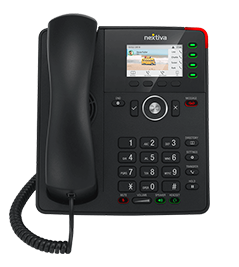Understanding Regulatory Compliance for VoIP
Staying compliant with telecommunications regulations is crucial for any business using Voice over Internet Protocol (VoIP) technology. Failure to adhere to certain rules can result in hefty fines or even service disruptions. But navigating the complex regulatory landscape can be confusing.
In this post, we’ll break down the key regulations you need to know to keep your VoIP communications legally compliant and running smoothly.
Why VoIP Compliance Matters
Unlike traditional landline phone services, VoIP calls are transmitted over the internet rather than the public switched telephone network (PSTN). This technology difference changes how VoIP is regulated.
VoIP services must comply with regulations at both federal and state levels. The main regulatory bodies overseeing VoIP in the United States are the Federal Communications Commission (FCC) and state public utility commissions.
If you don’t follow applicable rules and requirements, the consequences can be severe. Regulators have the power to impose fines of up to $10,000 per violation. In extreme cases, they may even force you to shut down VoIP services altogether. Staying compliant protects your business from these risks.
Critical Federal Compliance Considerations
When it comes to VoIP regulatory compliance, most businesses should focus their attention on FCC regulations. Here are some of the most important federal compliance issues to keep in mind:
Emergency 911 Services
One of the FCC’s top priorities is ensuring people can call 911 in an emergency, regardless of whether they use traditional phone service or VoIP. FCC rules require VoIP providers to transmit 911 calls to the appropriate public safety answering point (PSAP).
VoIP phones must also provide E911 services, such as transmitting a user’s location information to 911 call centers. Make sure your VoIP systems are compliant with 911 and E911 rules.
CALEA Compliance
The Communications Assistance for Law Enforcement Act (CALEA) obligates telecommunications carriers, including VoIP providers, to assist law enforcement with executing wiretaps and call data record searches when legally authorized. Your business needs technical solutions and procedures in place to respond to lawful surveillance requests.
Universal Service Fund Contributions
Companies offering VoIP must contribute to the federal Universal Service Fund (USF). This fund subsidizes telecommunications services to low-income households and high-cost areas. USF contribution requirements apply to both residential and business-focused VoIP providers.
Disability Access
Under FCC rules and the Americans with Disabilities Act (ADA), VoIP services must be accessible to people with disabilities. This includes providing solutions for hearing, vision, mobility, and speech impairments. Make accommodations such as support for TTY devices.
Protecting Consumer Privacy
Businesses handling customer data must take measures to protect privacy. The FCC’s Customer Proprietary Network Information (CPNI) rules limit how companies can use or share personal account details and call records. Make sure your data retention and sharing policies follow CPNI regulations.
Navigating the State Regulatory Landscape
In addition to federal compliance, VoIP providers must contend with a patchwork of state regulations. Rules differ across states, but these are issues you may need to address:
- Service certification – Some states require VoIP companies to register or get certified to provide intrastate services. Research if you need to apply for state certification.
- E911 – States often impose regulations related to 911 and E911 that go beyond federal requirements. Know the state-specific E911 rules that apply to your business.
- USF contributions – On top of federal USF fees, some states charge state USF or similar surcharges that VoIP providers must collect and remit.
- Taxes and fees – You may need to collect and pay taxes and regulatory fees such as state sales taxes and universal service charges.
The best approach is to seek guidance from an attorney or consultant who specializes in VoIP compliance across multiple states. They can help you navigate state-by-state requirements.
Achieving Ongoing VoIP Compliance
Staying compliant with telecom regulations requires ongoing vigilance. Here are some tips:
Consult the experts – Work with legal counsel and compliance advisors who understand the nuances of VoIP regulatory rules. Rely on their guidance to implement compliant solutions.
Monitor for changes – Federal and state agencies update rules periodically. Regularly check government websites and sign up for newsletters to stay on top of changes.
Document processes – Keep records that prove you have effective compliance procedures in place. Thorough documentation also helps train staff.
Automate where possible – Billing and regulatory fee systems that integrate compliance processes can help reduce errors and omissions.
Conduct audits – Periodically audit compliance internally and consider hiring third-party auditors to identify potential gaps. Promptly correct any issues.
Common Compliance Pitfalls to Avoid
It’s easy to overlook small technicalities that cause compliance issues. Be proactive in avoiding these common pitfalls:
- Forgetting to renew an operating certificate or license on time
- Failing to update registered service area information for E911
- Missing a deadline to pay regulatory fees
- Inaccurate federal or state USF contribution calculations
- Insufficient access to customer data by law enforcement when legally required
- Not keeping up with CPNI protection best practices as threats evolve
- Allowing certification or permits to lapse during corporate restructuring
Following a compliance calendar and setting renewal reminders can prevent these missteps.
The Costs of Non-Compliance
Maintaining compliance isn’t free. Often companies weigh the costs of compliance vs. non-compliance. But the monetary and reputational damages of violations usually far exceed compliance costs.
Consequences may include substantial fines from both federal and state authorities, legal fees fighting enforcement actions, potential disruption of service until issues are resolved, lost customers and damage to brand reputation, and diversion of staff resources away from daily operations.
A proactive approach to meeting regulations saves money in the long run.
Final Thoughts
Regulatory compliance might seem complicated, but partnering with the right VoIP provider makes meeting your compliance obligations easy. The best VoIP phone services build compliant systems and services so you can rest assured your critical cloud communications are legal.
